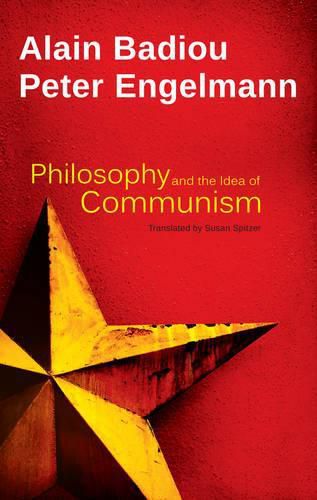Readings Newsletter
Become a Readings Member to make your shopping experience even easier.
Sign in or sign up for free!
You’re not far away from qualifying for FREE standard shipping within Australia
You’ve qualified for FREE standard shipping within Australia
The cart is loading…






In a well-known text called ‘The Communist Hypothesis’, first published in 2007, the renowned philosopher Alain Badiou breathed fresh life into the idea of communism as an intellectual representation that provides a critical perspective on existing politics and offers a systemic alternative to capitalism.
Now, in the course of this wide-ranging conversation with Peter Engelmann, Alain Badiou explains why he continues to value the idea of communism against the background of current social crises and despite negative historical experiences. From the anticipation of a communism without a state to the problem of the concept of democracy and an analysis of capitalism as a system, the two thinkers discuss the key political issues of our time. Whilst explaining his political philosophy, Badiou also reflects on current socio-political developments such as the turmoil in the Middle East and the situation in China.
This compelling dialogue is both a highly topical contribution to the question of how we might organize our societies differently and an accessible introduction to Badiou’s philosophical thinking.
$9.00 standard shipping within Australia
FREE standard shipping within Australia for orders over $100.00
Express & International shipping calculated at checkout
In a well-known text called ‘The Communist Hypothesis’, first published in 2007, the renowned philosopher Alain Badiou breathed fresh life into the idea of communism as an intellectual representation that provides a critical perspective on existing politics and offers a systemic alternative to capitalism.
Now, in the course of this wide-ranging conversation with Peter Engelmann, Alain Badiou explains why he continues to value the idea of communism against the background of current social crises and despite negative historical experiences. From the anticipation of a communism without a state to the problem of the concept of democracy and an analysis of capitalism as a system, the two thinkers discuss the key political issues of our time. Whilst explaining his political philosophy, Badiou also reflects on current socio-political developments such as the turmoil in the Middle East and the situation in China.
This compelling dialogue is both a highly topical contribution to the question of how we might organize our societies differently and an accessible introduction to Badiou’s philosophical thinking.